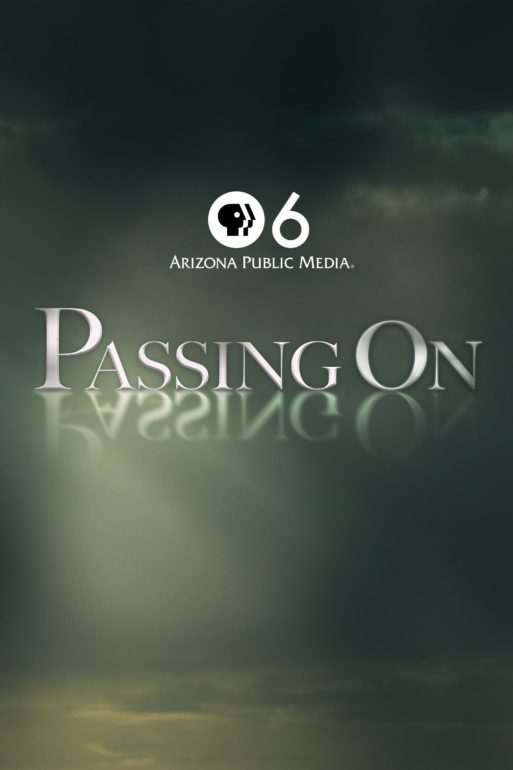 While 92 percent of Americans say it’s important to discuss their wishes for end-of-life care, only 32 percent have had such a conversation, according to a national survey taken this year. The documentary “Passing On,” narrated by NPR journalist Scott Simon, encourages us to follow the examples of a number of elderly dying patients who engage in talks about their impending deaths.
While 92 percent of Americans say it’s important to discuss their wishes for end-of-life care, only 32 percent have had such a conversation, according to a national survey taken this year. The documentary “Passing On,” narrated by NPR journalist Scott Simon, encourages us to follow the examples of a number of elderly dying patients who engage in talks about their impending deaths. 
Through their candid conversations with family and doctors, the viewer will likely come to understand that the more deliberately we pass on the way we want to die, the less anguish we and our families will suffer when we face our final hours.
Health Directives are a Necessity of Our Times
A greater need for stating and documenting our last wishes in health directives came about as medical practices became more successful at extending the lives of those who suffer from chronic illness. In “Passing On,” Dr. Sue Taylor, Medical Director of Palliative Care at the Tucson Medical Center, explains that, unlike 50 or more years ago, only 10 percent of deaths today occur from an acute injury (which, in the past, usually resulted in a “quick” death). Frailty and cognitive decline cause 50 percent of today’s deaths. “We don’t die of one thing anymore. We die from many things,” says Dr. Taylor.
Granted, conversations about end of life can be difficult. In addition, to be effective, the decisions must be expressed in written legal documents. Even though less than a third of us have taken this step, the town of La Crosse, Wisconsin — featured in “Passing On” — has gotten over 95% of its residents who die to fill out an advance healthcare directive, outlining how they wanted to die.
Discussing Final Wishes Before a Crisis Occurs
Bud Hammes, a medical ethicist at a local hospital, set out to make the end-of-life talk user-friendly for La Crosse town folk in 2014. He had taken part in far too many spur-of-the-moment conversations with families who were suddenly faced with making big decisions about incapacitated kin. He would sit down with the family and try to help them figure out what to do next. And every time, he says, the discussion was excruciating. Most of the time, Hammes recalls, they’d be talking about a patient who had been sick for years. Why not have that conversation earlier? he thought.
H ammes started training nurses to ask people ahead of time, “Would you like to fill out an advanced directive?” Eventually, the idea caught on. Then nurses asked willing patients questions like: “If you reach a point where treatments will extend your life by a few months and side effects are pretty serious, would you want doctors to stop, or continue to do all that could be done?” Most respondents said they would want the doctor to stop. In “Passing On” narrator Simons clarifies that a patient’s healthcare directive can designate that a doctor do everything, do nothing, or do anything in between.
ammes started training nurses to ask people ahead of time, “Would you like to fill out an advanced directive?” Eventually, the idea caught on. Then nurses asked willing patients questions like: “If you reach a point where treatments will extend your life by a few months and side effects are pretty serious, would you want doctors to stop, or continue to do all that could be done?” Most respondents said they would want the doctor to stop. In “Passing On” narrator Simons clarifies that a patient’s healthcare directive can designate that a doctor do everything, do nothing, or do anything in between.
Beyond Answering the Legal Questions
Dr. Taylor admits that her role in a patient’s and family’s end-of-life conversation has evolved. As a young doctor, she was trained to think she had all the answers. “I used big words and opined. I thought that people needed that.” She says she has come to realize her patients and their families may not know technicalities like sodium levels or valve diameters, but they have a good sense of the “big picture.” This has led her to raise questions more related to the heart than the medical charts — questions like:
- What are you hoping for?
- What is weighing on your mind most?
- What do you want done?
- What might you regret?
The patient’s answers help shape a treatment plan based on what the family values the most. “Every family has its own culture,” says Dr. Taylor. Helping them answer these deeper questions is her way of opening up the patient, the patient’s family and the doctors to other possibilities when cure is not possible. “Comfort and beauty and reconciliation and love — those are the miracles,” says Dr. Taylor, who has come to realize that the role of doctors of the chronically ill is to “cure rarely, treat often, and comfort always.”
Think about what your and your family’s values and end-of-life wishes might be as you watch the one-hour documentary “Passing On.” Then talk to them – sooner rather than later.

 “Passing On” produced by Arizona Public Media
“Passing On” produced by Arizona Public Media


 First the Wealth Gap, Now the U.S. Has a Growing Health Gap
First the Wealth Gap, Now the U.S. Has a Growing Health Gap
 How to Comfort A Dying Loved One
How to Comfort A Dying Loved One
 Our Annual Seven Holiday Gifts for Someone Who Is Grieving, 2024 Edition
Our Annual Seven Holiday Gifts for Someone Who Is Grieving, 2024 Edition














